- Home
- B. V. Larson
Battle Station sf-5
Battle Station sf-5 Read online
Battle Station
( Star force - 5 )
B. V. Larson
B. V. Larson
Battle Station
— 1
My scattered fleet looked like broken shards of glass, glinting in the wan light of a distant star. Counting my own ship, the surviving task force consisted of twenty-three destroyers and seventeen frigates. I’d arranged them in a circular pattern around an alien artifact of unknown origin. This artifact was known to us as a ring, a vast loop of dark material, similar in nature to rock, but closer in density to the collapsed matter found at the core of dead suns.
The ring orbited a small world which was the last in a long line of planets, the furthest from the system’s single yellow star. While unusual, it was not unprecedented to find a ring associated with a planet. We’d found other cases that were similar. The Venus ring was buried in the planet’s crust, and a small ring back on Helios had been located at the center of one of the termite-mound cities of the native population.
The icy world below was composed primarily of nickel, iron and frozen ammonia. It orbited a yellow star I’d named Eden. The planet’s surface was heavily frosted by cyrovolcanoes that periodically spewed out unpleasant liquids. These events were dramatic spectacles. Ammonia and methane bubbled up from the planet’s guts when tidal forces heated up the interior. Once these liquids reached the surface, they quickly froze into vast crystalline plains.
The ring sailed around this inhospitable planet with us, as cold and dark as the world below. I’d spent a long week staring at this ancient alien structure which connected the Eden system to-somewhere else. It was galling, not knowing what undiscovered star system was on the far side. I’d thought about sending scouts through a dozen times, but had always vetoed the idea. I knew the Macros might be waiting to blast us on the far side. They often seemed to operate on the basis of a triggering event, and I didn’t want to give them the opportunity to come at us again with renewed vigor. We just weren’t ready yet. My current plan was simple: if the Macros poked their snout out of that hole, we planned to blow it off for them. Otherwise, we’d wait.
The waiting was not easy. The ring was like a siren’s call. To be instantly transported to another system was exhilarating enough, but not to know what was on the far side of a structure that was only a few miles distant was positively maddening. The ring was ten miles in diameter, and there was plenty of room to fly all our ships through it-but we didn’t dare.
After spending a long hour in my ship’s observatory, staring at the ring and the cold, dark world below, I decided I didn’t really like the name Eden-21. The name was only temporary, of course. I decided to allow my marines to name this dismal rock. I set up a pool to give the place a more suitable title.
My troops were bored, and bored people tend to become overly concerned with small things. There were arguments and lotteries. After putting it to a vote, the winning name was “Hel” the Norse name for a frozen version of an unpleasant afterlife.
I had to smile. It was a fitting name for this unforgiving rock, and those stationed here would at least have the pleasure of reveling in jokes that would never get old: At our duty-station, Hel has frozen over-permanently.
Two weeks passed, during which I conversed with Crow at Star Force headquarters twice. The round trip time for a message all the way to Earth and back was roughly three days. I was overdue for Crow’s next response.
The first message had been initiated by me, and had contained the welcome news of victory. I’d chased the Macros out of the Eden system, thus liberating the Centaurs as we’d promised to do months ago. Three days later, I’d gotten Crow’s reply:
Congratulations, Colonel! Fantastic work! Please return as soon as you secure the Eden system. Earth needs every vessel we have to defend our home skies. Again, congratulations, superlative work!
— Admiral Jack Crow
I’d waited a number of hours before sending my response. Somehow, I didn’t think he’d like my next note, so why rush things?
Admiral Crow: all remains quiet here on the far front, but it is not yet secure. First, we’ll have to clean enemy forces off the local worlds to free them for the Centaurs. Next, I plan to build a permanent fortification here at the ring orbiting Hel to seal off enemy access to our systems from this direction. We need heavy production facilities to build the new fortifications. Please send eight factories. Do not worry about providing raw materials, we have plenty of those in close proximity.
— Colonel Kyle Riggs
After sending off that note, I knew somehow I wasn’t going to be congratulated again when the next message arrived. Crow and I rarely saw eye-to-eye on strategy. His take on things was usually very defensive and, in my opinion, self-serving. He didn’t care much if we left Eden and the Macros came rolling back to enslave the Centaurs again. What he cared about was the number of ships defending Earth and his own personal posterior.
I couldn’t condemn him entirely for his conservative ideas, of course. In the end, maybe he would turn out to be right. Maybe trying to take four systems and hold them was too much for Earth right now. I would freely admit that I might turn out to be the fool today. But I couldn’t give up on all these territorial gains without a fight. We had the advantage, at least momentarily, and I wanted to seize it and milk it for all it was worth.
When Crow’s response did finally come in, it was as I expected:
Colonel Riggs, perhaps I did not make myself clear. You are hereby ordered to return all Star Force Fleet units to the Solar System. Feel free to leave a few ships behind, including one at each ring for purposes of communication and surveillance.
Kyle, I know you have big ideas, and I appreciate that. But I can’t spare factories or ships. We must rebuild, mate! You won by a thread out there, don’t push it!
— Admiral Crow
I sat in my command chair, brooding. There were three other officers aboard Barbarossa, and they were all avoiding eye contact. I heaved a sigh, read the message again, and then deleted it with gloved fingers tapping hard on the screen.
I had to make a decision. Was I going to obey what seemed like a reasonable order from headquarters, or was I going to ignore the recall and possibly shake up our command structure?
I sat there for several more long minutes in my contoured chair. Growing bored with that, I stood up and paced around the bridge. There wasn’t a lot of room for this, so it wasn’t terribly satisfying. No one aboard the destroyer spoke to me. Even Marvin, who tracked me with two of his cameras as I paced, said nothing. They had to have some clue as to what I was thinking. They may not know what the message from Crow said, but they could guess what it was about.
I thought about the men around me. They were loyal. Probably, most of them were more personally loyal to me rather than to Star Force itself. Throughout history, when a charismatic leader led troops into grim campaigns and won through, his troops tended to trust him more than their own governments. Julius Caesar had marched home with his own loyal legion from Gaul one day and crossed the Rubicon River. At that point, he’d become a rebel. Unlike most rebels, his rebellion was successful.
I wasn’t ready for that kind of thing-not yet at least, and probably never. I did feel some sympathy for old Julius, however. He must have gotten orders he didn’t like from distant Rome. He must have felt he was the unappreciated hero in the field, tired of the fat gray-beards back home who sought to micromanage him from afar. Interstellar distances had taken us backward in time as far as military communications went. It now took days for messages to be transmitted to headquarters and back. There was no instant, live-feed video, connecting us firmly to Earth.
“I’m ordering a staff meeting,” I announced over the command chann
el. “Commodore Decker, Captain Miklos, Marvin and Kwon, I want all of you in on this. We’ll meet in the troop pod on Barbarossa in thirty minutes.”
Commodore Decker was the last to arrive at the meeting. He paused at the entrance, staring at the assembled group. Captain Miklos was missing large sections of hair and his exposed scalp was covered in purplish-red weals. He’d been pretty badly banged-up in the recent fleet battles with the Macros. It was only due to the miracle-working nanites in his system he was able to sit at the conference table I’d shaped from the floor of the ship for the occasion. Kwon sat across from Miklos, a hulking noncom that looked out of place at any formal meeting. He barely fit into his battle suit, even though it was the largest size we made. Last, and certainly not least, was the freak Marvin had become.
Marvin had given himself another makeover in recent days. To the uninitiated-which definitely included the gaping Commodore-he was horrifying to gaze upon. Formed of a mass of nanite-streams and struts with random pieces of equipment poking out here and there, he was vaguely humanoid in shape. The most disconcerting thing about him had to be the whipping arms. There were seven of them, all of varied lengths. He used these snake-like independent tentacles to drag himself around, slithering like an octopus out of water. In order to keep his mass upright, several of these tentacles tended to grasp the backs of other people’s chairs for support. A dozen camera eyes poked out of his body-mass from his knee-joints and the tips of extra tentacles. Every camera simultaneously moved and tracked something different, adding to the distraction.
“What the hell is that?” Decker asked.
“That’s Marvin,” I said, as if the robot were the most natural thing in the world to encounter. “Don’t be rude, Commodore. I’m considering him for a commission in Star Force.”
“You want to make that contraption into an officer?”
“Excuse me, Commodore,” Marvin interrupted. “Is my appearance somehow disturbing?”
“Positively nightmarish.”
“I apologize. I’d thought by taking on a body mass that approximates human configurations, I would be more acceptable.”
I nodded. “Ignore the Commodore’s bigotry, Marvin. It’s only natural. Once people get to know you, they will be less frightened.”
The Commodore snorted at this. He straightened his spine and took one of the chairs. The entrance vanished behind him, turning into a smooth nanite wall again. I suppressed a smile. Off-handedly referring to him as a cowardly bigot had gotten him to move his butt to the table where I wanted it. In truth, I had sympathy for Decker’s reaction-Marvin was a metal terror. But I didn’t like Decker, and I needed to get him past worrying about Marvin.
“May I make a suggestion, Marvin,” Kwon said, leaning toward the robot.
Several cameras swung toward Kwon, who sat at Marvin’s side. “Of course.”
Of all the people who’d met Marvin, only Kwon seemed undaunted by his current configuration. He hadn’t even made a remark up until this point regarding the robot’s appearance.
“You do look vaguely human in shape, but with extra-things here and there,” Kwon said. “Humans often find large people intimidating. I’m a big man, so I know all about that. Perhaps you could reduce your physical size if you want to put people more at ease.”
I nodded, thinking it was good advice. I listened to Marvin’s response with interest.
“I will consider your suggestion at my next point of reconfiguration. The process of choosing my non-ship form is not yet complete. I must weigh many considerations when redesigning myself. This form has excellent sensory input, but it has poor locomotion capabilities under the influence of gravity. I’d originally designed it for a zero-G environment.”
“The thing designs itself? ” asked Commodore Decker.
“Absolutely,” I said. “He rebuilds his body when it suits him, much as a man might select a new outfit for dinner.”’
Decker’s eyes flicked back to me. “You brought a sumo sergeant and a renegade robot to this meeting? Is this some kind of attempt to intimidate me, Colonel?”
He had figured it out faster than I’d expected. I waved my hand at the group and denied everything. “These are my confidants. The veterans of Star Force. I’m sorry if they don’t meet with your approval.”
Decker heaved a sigh and put his elbows on the table. “Okay, I’m over worrying about your crew, Riggs. Let’s get down to business.”
We all looked at him.
“I’m assuming you received the recall message from headquarters,” Decker said. “In fact, I know you did, and I know exactly what it said.”
My face tightened. I reminded myself to ask Marvin if he’d finished the new secure command messaging system. This business of publicly emailing orders from star system to star system wasn’t going to be acceptable any longer. I’d put up with it so far because the system was only a few weeks old. But now we needed to be able to keep messages private. Especially orders I didn’t like.
My first thought was to yell at the Commodore, delivering a new, perfectly clear message regarding what I thought of his reading everything that came in from Fleet. But I held back, telling myself the situation was better out in the open. He’d come forward and put his cards on the table. I could appreciate that.
“Commodore, you’ll be glad to hear that I’ve decided to comply with the orders.”
Decker looked honestly surprised. I found this amusing. Did I really have that bad of a rep? I supposed that I did.
“Well, I-that’s excellent, Colonel. When do we fly?”
“Immediately,” I said.
Decker demeanor changed from surprised to enthusiastic. I could tell he relished the idea of getting back home to Earth. I couldn’t say I blamed him for that.
“I recommend a column formation,” he gushed. “That way, we will limit our exposure to mines. There are a lot of them out there, most of them undocumented. We can put the destroyers in the vanguard, as they possess our best point-defense weaponry. If-”
I interrupted him with a gauntleted hand, which I raised into the air. “The destroyers won’t be going home, Commodore. At least, not most of them.”
His mouth opened, closed, and then opened again. “What?” he demanded when he managed to absorb my statement.
“Just as I said. Most of the destroyers will be staying. I’m posting one at each ring. Each vessel will contain a full complement of marines in their troop pods. They will provide security and serve to relay messages back to Earth. Then there is this destroyer, Barbarossa — I’ll keep it as a command ship. My own personal ship, Socorro, will be staying as well. Most of the rest of them will be remaining behind as my core task force. I need the ships to mop up the system and defend against any future attempt to reconquer it.”
“You can’t do that! Our orders are clear, Colonel.”
“Indeed they are,” I said. “Let’s review the orders, shall we?”
I read Crow’s words out loud, emphasizing the line: “ Please return as soon as you secure the Eden system. ” Followed by: “ Feel free to leave a few ships behind, including one at each ring for purposes of communication and surveillance. ”
“He didn’t mean you could keep the destroyers!” Decker sputtered. “This will not stand, sir. Mark my words, this will not stand!”
“You can mark them all you want from the deck of your command ship-which will be an empty frigate on the way home, I’m afraid. Dismissed.”
Decker stormed out, leaving me with the rest of them.
“You seem to have upset the Commodore,” Marvin said.
“The Colonel does that all the time,” Kwon said, laughing in his unique, hitching way.
“Kwon, have you secured the ship’s armories?” I asked.
“Yes sir, already done.”
“Marvin, have you rerouted the ship’s messaging system yet?”
“Yes Colonel,” Marvin said. “All communications will go through me now-literally. I’ve automated the syst
em and the processor load should be quite low. I’ve set up a series of key phrases and conditions to flag questionable messages for your personal approval before they are allowed to be transmitted or received.”
I turned to Captain Miklos next, who had listened throughout the meeting without making any comments. “Captain, are the new ship rosters ready? I want those crews remixed before Decker pulls out.”
“Yes sir,” Miklos said. “You’re longstanding veterans are all moving onto the destroyers. May I say something, Colonel?”
I nodded.
“I find the entire process of commandeering these ships disturbing. Is it absolutely necessary?”
“I feel that it is.”
“Very good, sir.”
The meeting broke up. Everyone left quickly, as they all had something urgent to do. I watched them go with mixed feelings. I hadn’t crossed the Rubicon yet, but I’d certainly given Crow a good look at my middle finger. I wondered how it would all turn out in the end.
— 2
When avoiding the intent of your orders, but not completely blowing them off, it is important to maintain appearances. Therefore, I decided to “clean up the system” as my first action. There were plenty of Macros running around on the local planets, and I meant to eradicate them.
I had ulterior motives to choosing this course of action. One was to appear to be following orders-but there were other reasons. I wanted the Macros dead, of course. And I wanted to help the Centaurs regain their lands as I’d promised them I would. But more than that, I wanted factories. I couldn’t run a campaign on what we had with us this time, which was a single factory. Socorro had the sole production unit. As my command staff split up and went to perform their various duties, I crossed over to Socorro. I quickly reassigned the two-man crew to Decker’s group, bidding them a fond farewell. They exited with bitter glances back at me. Good riddance, I thought, even as I beamed and waved at them.

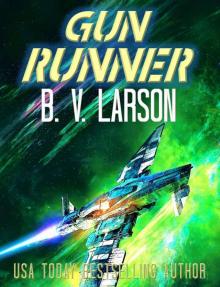 Gun Runner
Gun Runner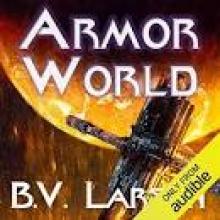 Armor World
Armor World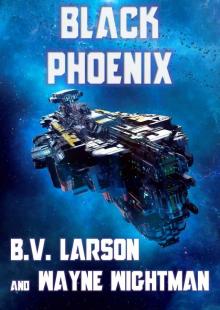 Black Phoenix
Black Phoenix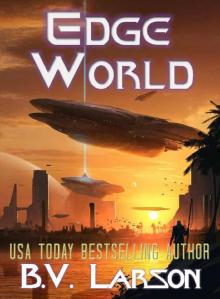 Edge World (Undying Mercenaries Series Book 14)
Edge World (Undying Mercenaries Series Book 14)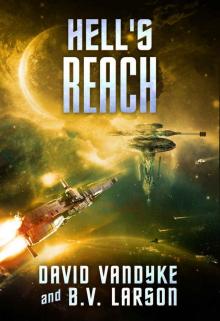 Hell's Reach (Galactic Liberation Series Book 6)
Hell's Reach (Galactic Liberation Series Book 6)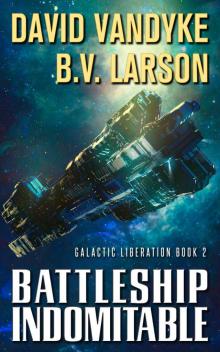 Battleship Indomitable
Battleship Indomitable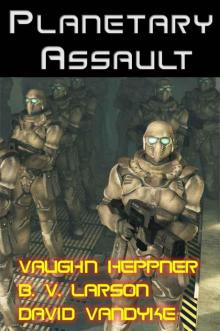 Planetary Assault (Star Force Series)
Planetary Assault (Star Force Series)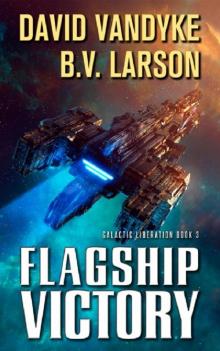 Flagship Victory (Galactic Liberation Book 3)
Flagship Victory (Galactic Liberation Book 3)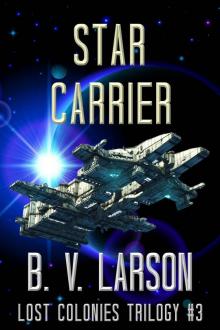 Star Carrier (Lost Colonies Trilogy Book 3)
Star Carrier (Lost Colonies Trilogy Book 3)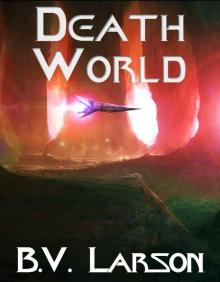 Death World (Undying Mercenaries Series Book 5)
Death World (Undying Mercenaries Series Book 5)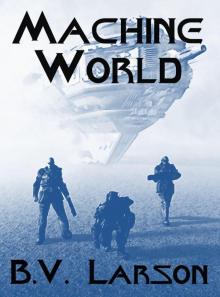 Machine World (Undying Mercenaries Book 4)
Machine World (Undying Mercenaries Book 4) Mech 2
Mech 2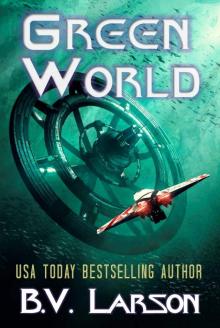 Green World
Green World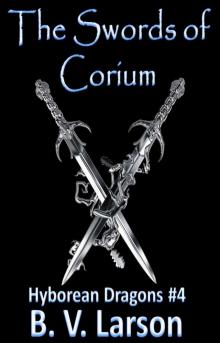 The Swords of Corium
The Swords of Corium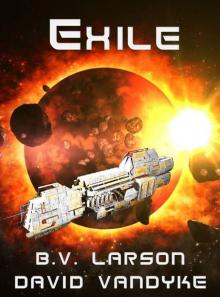 Star Force 11: Exile
Star Force 11: Exile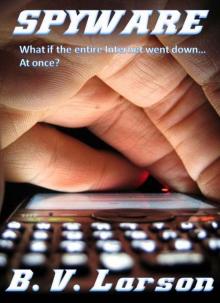 SPYWARE BOOK
SPYWARE BOOK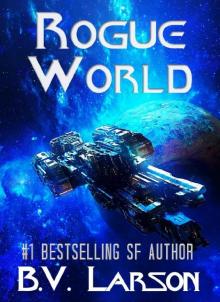 Rogue World (Undying Mercenaries Series Book 7)
Rogue World (Undying Mercenaries Series Book 7)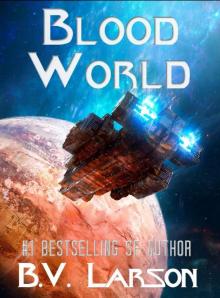 Blood World (Undying Mercenaries Series Book 8)
Blood World (Undying Mercenaries Series Book 8)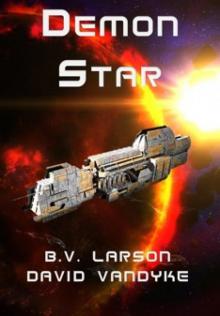 Demon Star
Demon Star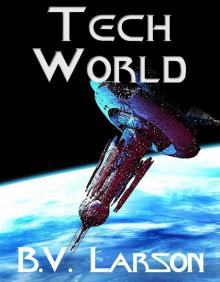 Tech World (Undying Mercenaries Series)
Tech World (Undying Mercenaries Series)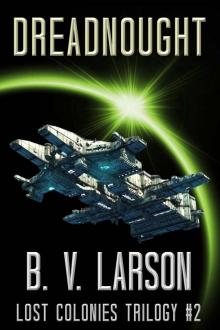 Dreadnought (Lost Colonies Trilogy Book 2)
Dreadnought (Lost Colonies Trilogy Book 2) Shifting
Shifting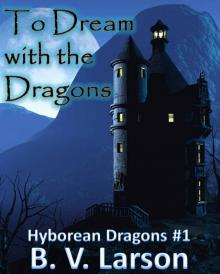 To Dream with the Dragons (Hyborean Dragons)
To Dream with the Dragons (Hyborean Dragons)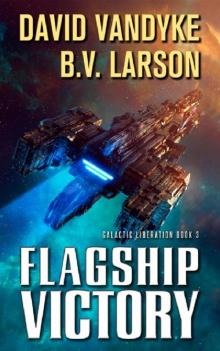 Flagship Victory
Flagship Victory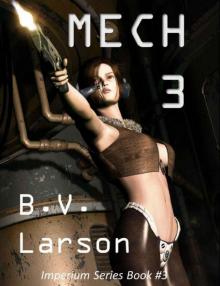 Mech 3: The Empress
Mech 3: The Empress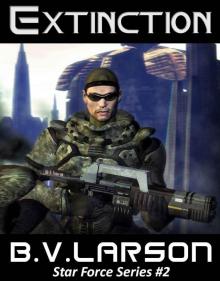 Extinction Ebook Full
Extinction Ebook Full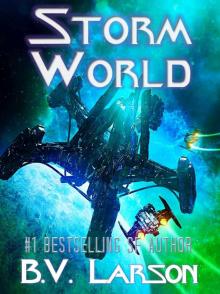 Storm World (Undying Mercenaries Series Book 10)
Storm World (Undying Mercenaries Series Book 10)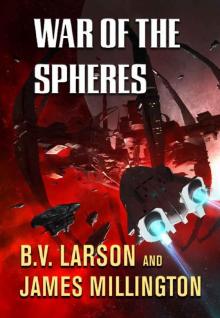 War of the Spheres
War of the Spheres MECH EBOOK
MECH EBOOK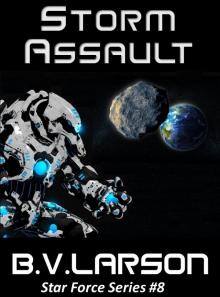 Storm Assault (Star Force Series)
Storm Assault (Star Force Series)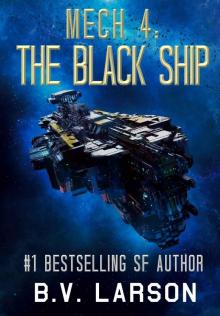 Mech 4: The Black Ship (Imperium Series Book 5)
Mech 4: The Black Ship (Imperium Series Book 5)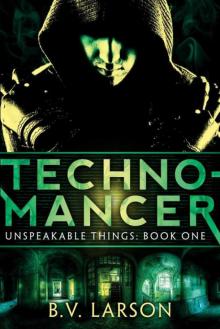 Technomancer
Technomancer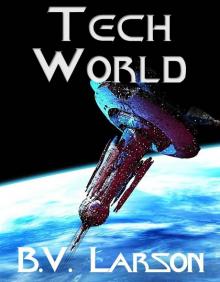 Tech World
Tech World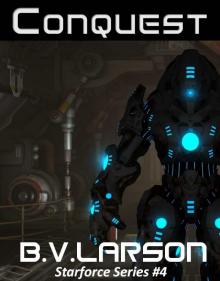 Conquest (Star Force Series)
Conquest (Star Force Series)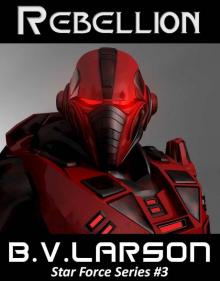 Rebellion sf-3
Rebellion sf-3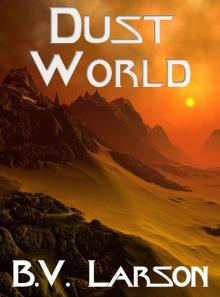 Dust World
Dust World The Dragon Wicked
The Dragon Wicked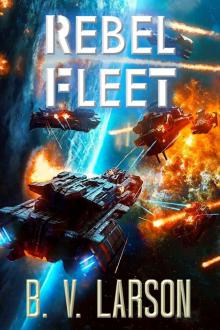 Rebel Fleet
Rebel Fleet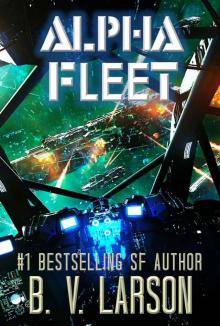 Alpha Fleet (Rebel Fleet Series Book 3)
Alpha Fleet (Rebel Fleet Series Book 3)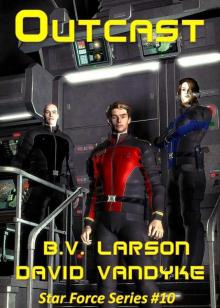 Star Force 10: Outcast
Star Force 10: Outcast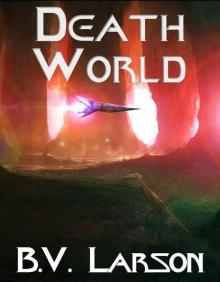 Death World
Death World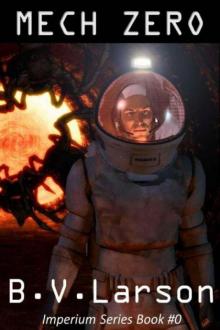 Mech Zero: The Dominant
Mech Zero: The Dominant The Sorcerer's Bane
The Sorcerer's Bane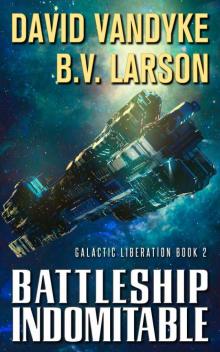 Battleship Indomitable (Galactic Liberation Book 2)
Battleship Indomitable (Galactic Liberation Book 2) Haven Magic
Haven Magic Amber Magic (Haven Series #1)
Amber Magic (Haven Series #1)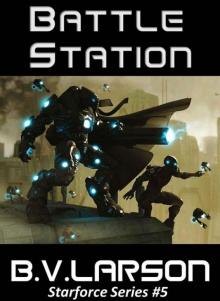 Battle Station sf-5
Battle Station sf-5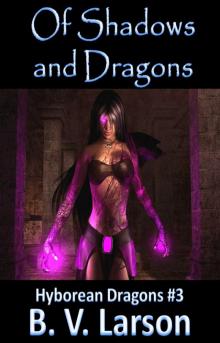 Of Shadows and Dragons
Of Shadows and Dragons Starfire
Starfire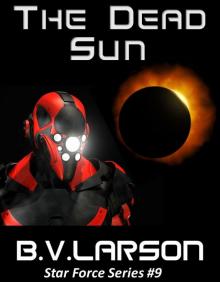 The Dead Sun (Star Force Series)
The Dead Sun (Star Force Series)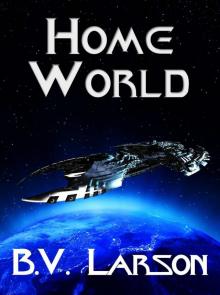 Home World (Undying Mercenaries Series Book 6)
Home World (Undying Mercenaries Series Book 6)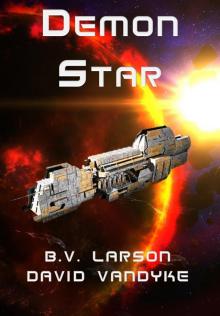 Star Force 12 Demon Star
Star Force 12 Demon Star Dream Magic
Dream Magic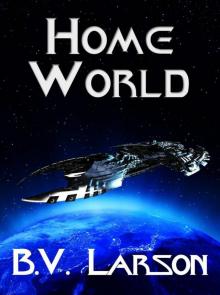 Home World
Home World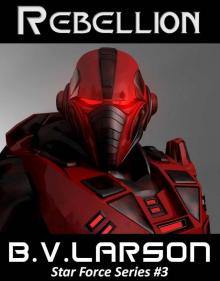 Rebellion Ebook Full
Rebellion Ebook Full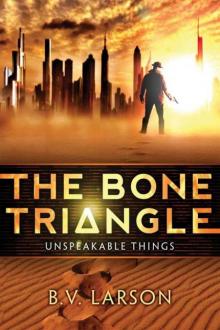 The Bone Triangle
The Bone Triangle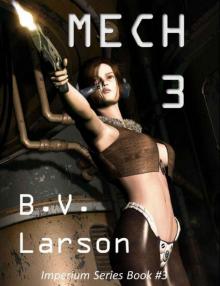 The Empress i-3
The Empress i-3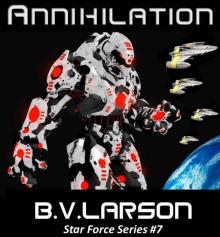 Annihilation (Star Force Series)
Annihilation (Star Force Series)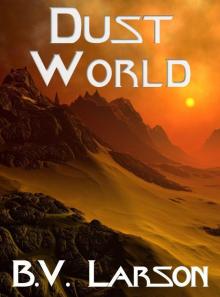 Undying Mercenaries 2: Dust World
Undying Mercenaries 2: Dust World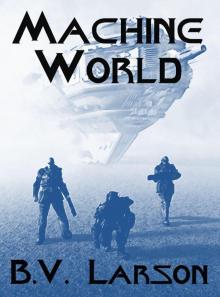 Machine World
Machine World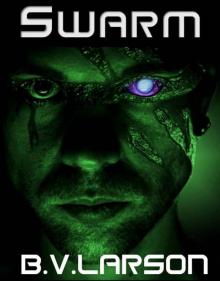 Swarm
Swarm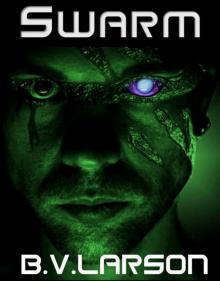 Swarm sf-1
Swarm sf-1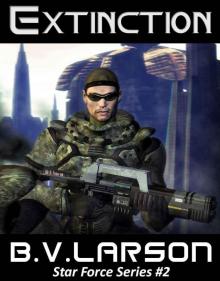 Extinction sf-2
Extinction sf-2 Amber Magic h-1
Amber Magic h-1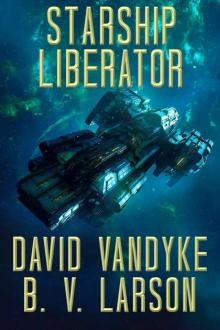 Starship Liberator
Starship Liberator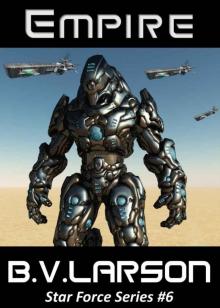 Empire Ebook Full
Empire Ebook Full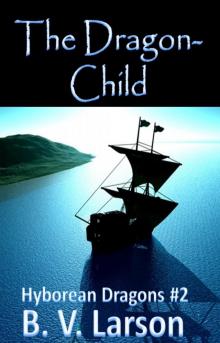 The Dragon-Child
The Dragon-Child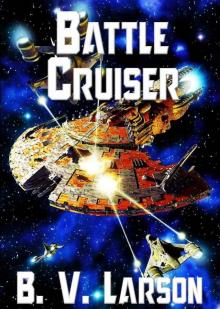 Battle Cruiser
Battle Cruiser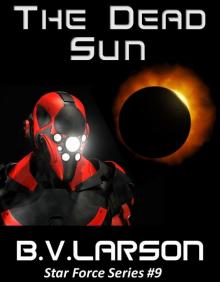 The Dead Sun
The Dead Sun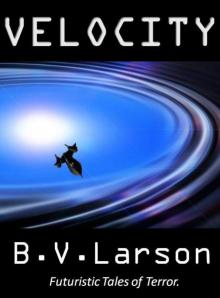 Velocity
Velocity Creatures
Creatures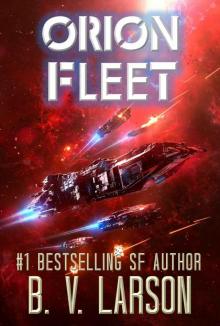 Orion Fleet (Rebel Fleet Series Book 2)
Orion Fleet (Rebel Fleet Series Book 2)